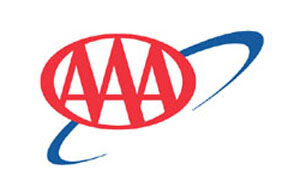AAA Will Rescue Nearly 800,000 Stranded Drivers Around the 4th of July Holiday
The Auto Club Group Urges Motorists to Get a Vehicle Inspection Before their Road Trip
As a record-setting 1.4 million Tennesseans prepare to set out for an Independence Day road trip, AAA urges drivers to make sure their vehicle is ready for the road.
AAA expects to rescue nearly 800,000 stranded motorists during the nine-day holiday period, from Saturday, June 29 to Sunday, July 7th. The most common problems AAA expects stranded motorists to have are dead batteries, flat tires, and lockouts.
“The hotter summer months take a toll on your vehicle’s battery and tires,” said Megan Cooper, spokeswoman for AAA – The Auto Club Group. “That’s why it’s so important to get a pre-trip vehicle inspection. Doing so could uncover potential vehicle problems that might not otherwise reveal themselves until your trip.”
AAA Tips to Prevent Car Problems
- Check your tires – Inspect all four tires and the spare tire if your vehicle has one. Pay special attention to both tire inflation pressure and tread depth.
- Check your battery – The average car battery life is typically 3-5 years. If your engine is slow to start and/or your lights are dim, your battery may be nearing the end of its life. Drivers can ask for a battery check at a AAA Car Care Center or Approved Auto Repair Facility. AAA can also come to a member’s location to test and, if needed, replace the battery on site.
- Listen to and feel the brakes – If you hear a grinding sound or feel a vibration when applying the brakes, take your vehicle to an auto repair shop for a brake inspection.
- Replace wiper blades and replenish windshield cleaner – If wipers streak or fail to clear the windshield thoroughly, replace the blades. Most manufacturers recommend replacing them every 6-12 months.
- Top off engine oil and other fluids – Check that engine oil, coolant, brake, transmission, and power steering fluids are at the correct levels for safe vehicle operation. When adding fluids, use products that meet the specifications listed in the owner’s manual.
- Replenish emergency kit supplies – AAA recommends keeping a well-stocked emergency kit in your vehicle. Include a flashlight and extra fresh batteries, first-aid supplies, drinking water, non-perishable snacks for people and pets, car battery booster cables, emergency flares or reflectors, a rain poncho, a basic tool kit, duct tape, gloves and shop rags or paper towels.
AAA Tips for Drivers with Car Trouble
- Pull as far over on the shoulder as safely possible to create more distance between your vehicle and passing traffic.
- Turn your hazard lights on so other drivers are aware you are there.
- Call for assistance via phone, website or the AAA Mobile app.
- Remain with your vehicle as long as it’s safe to do so.
- If getting out of your vehicle, watch the oncoming traffic for a good time to exit, and remain alert and close to your vehicle. Avoid turning your back to traffic whenever possible.
- When traveling on the highway, try to get to the next exit or stopping point, if you’re safely able to do so.
AAA Resources for Your Road Trip:
- Search for AAA Approved Auto Repair Facilitiesnear you.
- Use AAA’s Repair Cost Estimatorto determine estimated repair costs, including parts, labor and a AAA member discount.
- Use AAA’s Gas Cost Calculatorto determine the estimated fuel costs for your trip.
Safe Driving Tips
Preparing your vehicle is one thing. It’s also important that drivers are personally ready to focus on the road. AAA provides the following safe driving habits, as a reminder for drivers:
- Watch your speed– For more than two decades, speeding has been involved in approximately one-third of all motor vehicle fatalities. Be sure to drive the speed limit and lower your speed if conditions warrant.
- Watch the road– Distracted drivers kill thousands of people every year. Taking eyes off the road for more than two seconds doubles the risk of a crash. Potential distractions include cell phone use, eating, drinking, or interacting with other passengers. Focusing on the road enables drivers to spot and avoid potential hazards that could otherwise lead to a crash.
- Rest up – Drowsy driving is as dangerous as drunk driving. AAA recommends drivers get plenty of rest before a big road trip. During a drive, take breaks every 100 miles or two hours. Motorists should pull over if they find themselves getting tired.
- Drive Sober – Drugs and alcohol negatively impact the important brain functions needed for driving safely: judgement, motor skills, memory, and reaction time. AAA urges everyone to avoid driving after ingesting any substance that could impair their ability to drive.
Move Over for Roadside Workers and Stranded Motorists:
Fatal roadside crashes are a growing problem nationwide. Every year, nearly 350 people are struck and killed outside a disabled vehicle. Additionally, on average, one tow operator is killed at the roadside every other week. These deaths can be avoided if drivers follow the law and move over.
“AAA’s roadside technicians will put their lives on the line to rescue the hundreds of thousands of drivers on the roadside with car trouble,” continued Cooper. “We urge drivers to stay focused on the road and its shoulders. Whether it’s a first responder, tow truck or disabled vehicle, if you see flashing lights, move over so everyone can make it home safely for the holiday.”






